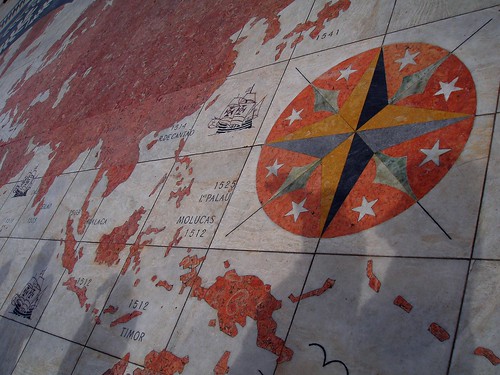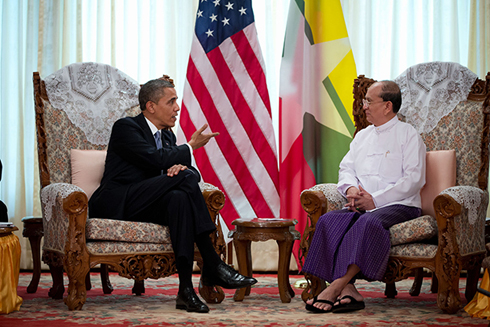
PARIS – The newspaper commentaries that I write often have a dark perspective. Sadly, this one will be no different. But there are two pieces of good news that break through the gloom.
First, the global significance of US President Barack Obama’s reelection is clear: the world has escaped a disaster for international cooperation. The US was on the verge of sinking into isolationist nationalism, reinforced, perhaps, by xenophobic sentiment. Obama’s victory, despite America’s economic travails, clears the way for cooperation based on a sympathetic ear to others and on negotiations in which the US does not deny the legitimacy of a global public interest (as it has done, unfortunately, on the issue of climate change).
The other piece of good news concerns France, and thus is more “local,” but is crucially important nonetheless. Like everywhere else in the developed world, the global crisis has hit the French economy hard, with output stagnating, unemployment rising, job insecurity mounting, government debt soaring, and the stock market at risk of crashing. Manufacturing production has plummeted, the trade balance has deteriorated sharply, and corporate bankruptcies are increasingly frequent.
For six months, France has had new leadership – a new president, government, and parliament. But President François Hollande and his government were strangely inactive after the elections, limiting themselves to reducing the impact of unfair budget cuts and taxation reforms implemented by the previous government of Nicolas Sarkozy. Many began to wonder whether Hollande was aware of the scope of the crisis that the recent downturn might trigger.
In recent weeks, however, the government has introduced energetic and courageous measures to boost the competitiveness of French industries, including a huge €20 billion ($26 billion) tax break for businesses, to be financed by a hike in value-added tax, which means that the general public will pay for it. The VAT increase will hurt, but there was no other way. Awareness, boldness, and comprehensive policymaking have come as a relief to French investors, and have left them better positioned to face the crisis.
The French government’s new push to confront the country’s economic plight matters not only to France, but to Europe and the world as well. After all, France is the eurozone’s second-largest economy, and the fifth-largest economy in the world.
And yet, despite these bright spots, international cooperation on issues ranging from regional conflicts to the protection of global public goods remains weak. Antarctica, the only land in the world that is administered directly by the international community, is a recent case in point.
The Antarctic Treaty, negotiated in 1959, prohibits any and all military activities in Antarctica and forbids the establishment of any borders. Three agreements – the Convention for the Conservation of Antarctic Seals (1972), the Convention on the Conservation of Antarctic Marine Living Resources (CCAMLR, 1980), and the Protocol on Environmental Protection to the Antarctic Treaty (PEP, 1991), which prohibits any activity relating to mineral resources – have since been added to the treaty.
The Antarctic Treaty System includes three annual meetings: one deals with the supervision and management of the Treaty itself, and the other two concern the CCAMLR and the PEP. In recent years, proposals have been considered that would establish marine reserves around the continent and end the risk of growing scarcity, or the outright disappearance, of a variety of species of fish and cetaceans.
The principle that international cooperation is required to protect fishery resources, which are dwindling everywhere, was adopted at the 2011 CCAMLR meeting. At the 2012 CCAMLR meeting, which concluded at the beginning of November in Hobart, Australia, three proposals (from the US, New Zealand, and France/Australia) to establish marine reserves in three different areas were discussed. They were compatible and would reinforce one another. Yet the discussion foundered, and no decision was taken. Russia and Ukraine – and, to a lesser extent, China – blocked efforts to reach an agreement.
This failure reflects the same dynamic at work in the breakdown of global climate-change conferences in recent years: a few cynical countries, whose cooperation is needed to save the planet, fuel the madness of those bent on destroying it. That will not change until a new consciousness emerges worldwide to persuade states to support binding international law.
The US has now reelected a president who understands this. France has a president who understands the need for bold, far-reaching actions as well. Their active leadership, and that of others, is needed now more than ever to turn the tide.
The Nature and Role of Regional Agreements in International Environmental Politics
Tackling Macroeconomic Risks – A Case for Stronger Transatlantic Cooperation
Creating a Global Partnership for Effective Development Cooperation
For more information on issues and events that shape our world please visit the ISN’s Security Watch and Editorial Plan.

